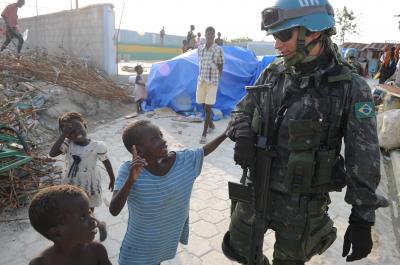Peacekeeping: What Works and Why?
From Rwanda, Kosovo, and Sierra Leone to DR Congo, in the past two decades we have witnessed a series of international peacekeeping operations aiming to halt immediate violent conflict and lay the foundation for lasting peace. These operations must serve not only the international politics of their creation but also the fractured local societies they aim to transform. While the international face of peace operations has been widely analysed, we know much less about how they work at the local level.
Building on the accumulated experience of more than a decade of 'lesson learning' from United Nations peace operations and the wars in Iraq and Afghanistan, this seminar asks: How do peace operations govern ‘on the ground’? Why do some peace operations work more effectively than others? How much local legitimacy do peace operations need to be effective, and how can they secure it in the midst of ongoing conflict and often violently contested local politics?
Panelists:
- Dr Jeni Whalan, GEG Research Associate, Lecturer in International Security and Development at the University of New South Wales in Sydney, and author of How Peace Operations Work: Power, Legitimacy and Effectiveness (Oxford University Press, 2013)
- General Sir Nick Parker, Senior Associate Fellow at the Royal United Services Institute (RUSI) and former British Army Officer who held senior posts in Northern Ireland, Sierra Leone, Iraq and Afghanistan
- Professor Mats Berdal, Professor of Security and Development at King's College London
UPDATE: Audio recording of the event can now be streamed below.

